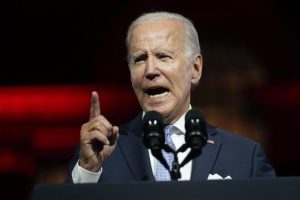
IPFS News Link • Voting and Elections
The Next Two Months
• Eric Peters AutosLincoln's election was intolerable to the people of the South, which shortly after his election in 1860 began to form what became the Southern Confederacy and shortly after that, attempted to withdraw from what it, with cause, saw as a political system that not only did not represent its interests but which it saw, also rightly, as a system that could not represent its interests. That last being an important point rarely, if ever, discussed in the schools established by the government that forced the Southern states back into the "union."
The North controlled the "union" politically and so actually because the North had the population and the money to dominate federal elections. And so the South had no way to redress its grievances within the construct of the "union."
It was not the election of 1860, per se, that triggered the South's attempt to withdraw but rather the realization that future elections would go similarly. What option does a minority have in a political system that is based upon majority rule? The choice is either acceptance of subordinate status and hope the master will be kind – or get away from the master.
It is exactly what the American colonies had done – and for same reasons and realizations – those "four score and seven" years before the election of 1860. Their successful attempt to withdraw from the union – with Great Britain – is celebrated by modern Americans, many of whom also think (if that is the right word) that the failed attempt by the people of the Southern Confederacy to do the same, for similar reasons and on exactly the same basis, in terms of the principle at issue – i.e., that of being governed by themselves rather than a distant people with whom they had increasingly little in common and who wielded political control over them that could not be redressed within the context of the "union" – was, somehow, a kind of crime.


































